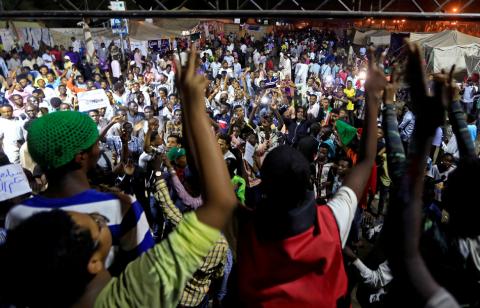Advertisement
Sudan's opposition observes first day of strike
KHARTOUM (Reuters) - Sudan's alliance of opposition and protest groups held the first day of a strike on Tuesday as tensions mounted with the country's military rulers over the transition to democracy.
Talks between the ruling Transitional Military Council (TMC) and the Declaration of Freedom and Change Forces (DFCF) alliance are at a standstill despite weeks of negotiations over whether civilians or the military will have the upper hand after the ousting of long-time president Omar al-Bashir last month.
Most staff in the medical sector, electricity offices and employees at the central bank as well as commercial banks observed the strike but other sectors were only partially affected.
Many shops remained open while buses were still transporting residents, a Reuters witness said. The airport in Khartoum was operating normally, a civil aviation authority source and state news agency SUNA said.
The DFCF had said the two-day strike would encompass public and private enterprise, including the civil aviation, railway, petroleum, banking, communications and health sectors.
If an agreement was not reached with the TMC, the DFCF would escalate by calling for an open strike and indefinite civil disobedience until power is handed to civilians, Wagdy Saleh, a representative of a coalition within the DFCF, told a news conference.
Saleh also said the TMC had demanded a two-thirds majority of eight to three on the sovereign council that will lead the country. The DFCF alliance wants civilians to dominate the council.
The deputy head of the TMC, Lieutenant General Mohamed Hamdan Dagalo, said on Monday that the council was ready to hand over power swiftly, but that the opposition was not being serious about sharing power and wanted to confine the military to a ceremonial role.
The TMC has suggested that elections should be held if an agreement cannot be reached between the sides.
The military ousted and detained Bashir on April 11, ending his 30-year rule after 16 weeks of street protests against him.
(Writing by Lena Masri, editing by Ed Osmond)



















Add new comment